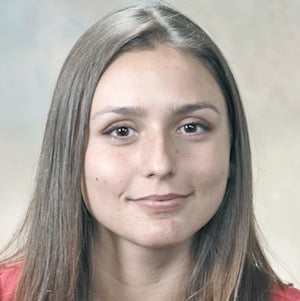 It’s been a month since we started adding expert peer reviews to our blog posts, and we have had a flurry of engaging conversation surrounding the new process. During this time we have worked to develop a sustainable peer review process. In fact there are two ongoing expert peer-review processes:
It’s been a month since we started adding expert peer reviews to our blog posts, and we have had a flurry of engaging conversation surrounding the new process. During this time we have worked to develop a sustainable peer review process. In fact there are two ongoing expert peer-review processes:
- Clinical articles: There have been 10 clinical articles thus far expert peer reviewed on a post-publication basis. See list below.
- MEdIC series: Dr. Teresa Chan and Dr. Brent Thoma host this monthly series on challenging educational cases with initial posited questions, followed by a summary review which includes expert input (added on a pre-publication basis) one week later.
As an unexpected bonus from this peer-review system in place, we now have a spontaneously developed team of ALiEM’s own peer section reviewers. Get to know these reviewers section under our “About” column where we will continue adding our regular section reviewers. Dr. Teresa Chan has been reviewing our Medical Education articles and now we are lucky to have a regular Critical Care article reviewer, Dr. Anand Swaminathan.
We would like to draw your attention to the clinical peer reviewed posts so that you can go back to revisit your favorites and see what our experts had to say with some notable quotes:
I learned about this from ECG guru Edward Chung in residency, and read about this in a few Marriott texts. The key is to remember to use it only in proper context. Patients should be actively having pain (i.e. it’s not a symptom-free finding such as Wellens), and is unreliable if LBBB, LVH, or high voltage is present. The latter seems to be the most common time it is overused — Dr. Amal Mattu on “ECG Subtlety: Tall T wave in V1”
Does it really matter? This is debatable. Scott argues that it does but that if you are factoring in albumin while doing Henderson-Hasselbalch, your analysis will be quite similar. Dubin et al found that the Strong Ion Theory was superior to Henderson-Hasselbalch in that it identified a substantial number of patients with metabolic disturbances that were missed by the traditional method. It did not, however, offer a diagnostic or prognostic advantage. — Dr. Anand Swaminatham on “Deciphering Acid-Base Disorders”
…it can never hurt to use “Bundle Branch Man” to help you remember those criteria. My 2 rules of hemiblocks are: You do not talk about hemiblocks (or fight club). This is because I don’t see much clinical impact from making this diagnosis, and if you put something in your head something else might fall out. If you really must learn them, the easiest approach is that extreme left axis deviation (more negative than -45 degrees) is LAFB and extreme right axis deviation (more than 180) is LPFB. — Dr. Jeff Tabas on “Bundle Branch Blocks (BBBs) 101“
Clinical blog articles expert peer reviewed in September 2013
1. Alarms from the ventilator: Troubleshooting high peak pressures
- Author: Todd Seigel MD
- Expert: Anand Swaminatham, MD MPH, Assistant Residency Director and Assistant Professor of EM, Bellevue/NYU; Faculty Editor of EM Lyceum
2. Deciphering Acid-base disorders
- Author: Todd Seigel, MD
- Expert: Anand Swaminatham, MD MPH, Assistant Residency Director and Assistant Professor of EM, Bellevue/NYU; Faculty Editor of EM Lyceum
3. Choosing the right vasopressor agent in hypotension
- Author: Todd Seigel, MD
- Expert: Anand Swaminatham, MD MPH, Assistant Residency Director and Assistant Professor of EM, Bellevue/NYU; Faculty Editor of EM Lyceum
4. Supraventricular tachycardia (SVT) with aberrancy versus Ventricular tachycardia (VT)
- Author: Salim Rezaie, MD
- Expert: Stephen W. Smith, MD, Faculty Emergency Physician, Hennepin County Medical Center, Associate Professor, University of Minnesota
5. PV Card: Brugada Criteria for SVT with Aberrancy vs Ventricular Tachycardia
- Authors: Salim Rezaie, MD; Jason West, MD
- Expert: Stephen W. Smith, MD, Faculty Emergency Physician, Hennepin County Medical Center, Associate Professor, University of Minnesota
6. EKG Subtlety: Tall T-Wave in Lead V1
- Author: Salim Rezaie, MD
- Expert: Amal Mattu, MD FACEP FAAEM; Vice Chair of Education, Professor of Emergency Medicine University of Maryland School of Medicine
7. Bundle Branch Blocks (BBB) 101
- Author: Salim Rezaie, MD
- Expert: Jeff Tabas, MD; Professor of Emergency Medicine, UCSF; Course Director, High Risk Emergency Medicine
8. Trick of the Trade: Urine pregnancy test without urine
- Author: Michelle Lin, MD
- Expert: Christian Fromm, MD; Assistant Professor of Emergency Medicine, Maimonides Medical Center
- Expert: Graham Walker, MD; Assistant Clinical Professor, UCSF; Emergency Medicine Physician, Kaiser San Francisco
9. PV Card: Emergency Drug Cards for Adults and Children
- Authors: Amie Hatch, PharmD, BCPS; Jeremy Bair, PharmD
- Expert: Zlatan Coralic, PharmD; Assistant Clinical Professor of Pharmacy and EM, University of California, San Francisco
- Expert: Bryan Hayes, PharmD; Clinical Assistant Professor, University of Maryland (UM) Schools of Pharmacy & Medicine
10. Are Acetaminophen Levels Necessary in All Overdose Patients?
- Author: Bryan Hayes, PharmD
- Expert: Kent Olson, MD, FACEP, FAACT, FACMT; Medical Director, San Francisco Division California Poison Control System
Just a reminder, peer reviewed posts can be found under “Clinical” then “Expert Peer Review (Clinical)”.

As promised, we will continue to update you monthly to keep you in to the loop about the peer reviewed articles. Please leave your comments and help us continue the conversation.
Author information
The post September 2013 Update: Expert Peer Reviewed posts appeared first on ALiEM.

